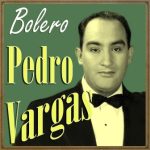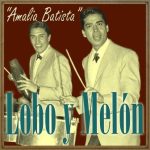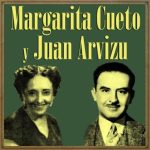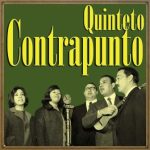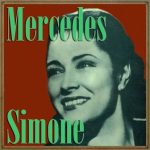ERNESTO LECUONA
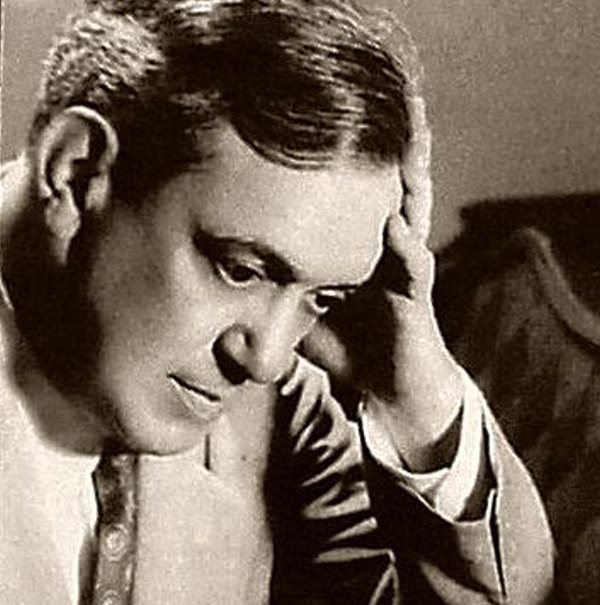
Releases
 Guillermo Portabales, Guillermo Portabales
Guillermo Portabales, Guillermo Portabales Juan Arvizu, Juan Arvizu
Juan Arvizu, Juan Arvizu Perlas Cubanas: Chico O'farrill
Perlas Cubanas: Chico O'farrill Malagueña, Ernesto Lecuona
Malagueña, Ernesto Lecuona Vals de las Sombras, Ernesto Lecuona
Vals de las Sombras, Ernesto Lecuona The Latin Sound Of Bebo Valdés
The Latin Sound Of Bebo Valdés El Alma de Cuba, Abelardo Barroso
El Alma de Cuba, Abelardo Barroso La Voz y las Canciones de Abelardo Barroso
La Voz y las Canciones de Abelardo Barroso Xiomara Alfaro, Xiomara Alfaro
Xiomara Alfaro, Xiomara Alfaro Dúo Cabrisas-Farach, Dúo Cabrisas-Farach
Dúo Cabrisas-Farach, Dúo Cabrisas-Farach Perlas Cubanas, Omara Portuondo
Perlas Cubanas, Omara Portuondo Perlas Cubanas, Cachao
Perlas Cubanas, Cachao Cuban Jam Session
Cuban Jam Session Carnaval en la Habana, Carlos Barberia
Carnaval en la Habana, Carlos Barberia Xavier Cugat in France, Spain and Italy, Xavier Cugat
Xavier Cugat in France, Spain and Italy, Xavier Cugat Centenary, Carmen Cavallaro
Centenary, Carmen Cavallaro El Manisero, Carmen Barros
El Manisero, Carmen Barros Alouette, Nick Perito
Alouette, Nick Perito La Guajira Cubana, Violines De Pego
La Guajira Cubana, Violines De Pego Luna de Miel en Puerto Rico, Los Ruffino
Luna de Miel en Puerto Rico, Los Ruffino Tropicana Special, Orlando Cachaito López
Tropicana Special, Orlando Cachaito López Plays Lecuona, The First Piano Quartet
Plays Lecuona, The First Piano Quartet Dame un Chance, Ernesto Duarte
Dame un Chance, Ernesto Duarte Sabicas & Escudero, Masters of the Spanish Guitar
Sabicas & Escudero, Masters of the Spanish Guitar Hi-Fiireworks, Ferrante & Teicher
Hi-Fiireworks, Ferrante & Teicher Latin World, Piano & Coffee, Pepe Jaramillo
Latin World, Piano & Coffee, Pepe Jaramillo Aires Hispano-Americanos, Arthur Fiedler
Aires Hispano-Americanos, Arthur Fiedler Cubita Cubera, Lecuona Cuban Boys
Cubita Cubera, Lecuona Cuban Boys Rapsodia De Cuba, Esther Borja
Rapsodia De Cuba, Esther Borja Carmen Cavallaro, Carmen Cavallaro
Carmen Cavallaro, Carmen Cavallaro Barbarito Diez, Barbarito Díez
Barbarito Diez, Barbarito Díez En Hispanoamérica, Earl Cadillac
En Hispanoamérica, Earl Cadillac Dinah Shore & Tony Martin
Dinah Shore & Tony Martin Alfredo Sadel, Alfredo Sadel
Alfredo Sadel, Alfredo Sadel Green Eyes, Desi Arnaz
Green Eyes, Desi Arnaz Canta En Español, Connie Francis
Canta En Español, Connie Francis O Mama, O Mama, O Mamajo, Caterina Valente
O Mama, O Mama, O Mamajo, Caterina Valente Siboney, Caterina Valente
Siboney, Caterina Valente Rhumbas For Dancing, Carmen Cavallaro
Rhumbas For Dancing, Carmen Cavallaro Canta En Español, Connie Francis
Canta En Español, Connie Francis Sings In Spanish, Caterina Valente
Sings In Spanish, Caterina Valente Carlos Montoya In Concert, Carlos Montoya
Carlos Montoya In Concert, Carlos Montoya Lecuona Cuban Boys, Ernesto Lecuona
Lecuona Cuban Boys, Ernesto Lecuona María Dolores, Al Stefano
María Dolores, Al Stefano Angelitos Negros, Xiomara Alfaro
Angelitos Negros, Xiomara Alfaro Exotic Sound, Terry Snyder
Exotic Sound, Terry Snyder Woman Of Jazz, Varios Artistas
Woman Of Jazz, Varios Artistas Harmonic World Champions (Winterthur 1955), Quinteto Les Akord's
Harmonic World Champions (Winterthur 1955), Quinteto Les Akord's Tropicana, Los Rivero
Tropicana, Los Rivero Xavier Cugat vs. Pérez Prado
Xavier Cugat vs. Pérez Prado 100 Piano Latino
100 Piano Latino
Videos
Biography
Ernesto Lecuona y Casado (August 6, 1895 – November 29, 1963) was a Cuban composer and pianist of Canarian father and Cuban mother, and worldwide fame. He composed over six hundred pieces, mostly in the Cuban vein, and was a pianist of exceptional skill.
Ernesto Lecuona was born in Guanabacoa, Havana, Cuba. He started studying piano at an early age, under his sister Ernestina Lecuona, a famed composer in her own right. As a child prodigy, he composed his first song at the age of 11. He later studied at the Peyrellade Conservatoire under Antonio Saavedra and the famous Joaquin Nin. Lecuona graduated from the National Conservatory of Havana with a Gold Medal for interpretation when he was sixteen. And he performed outside of Cuba at the Aeolian Hall (New York) in 1916.
He first travelled to Spain in 1924 on a concert tour with violinist Marta de la Torre; his successful piano recitals in 1928 at Paris coincided with a rise in interest in Cuban music.
He was a prolific composer of songs and music for stage and film. His works consisted of zarzuela, Afro-Cuban and Cuban rhythms, suites and many songs which are still very famous. They include Siboney (Canto Siboney), Malagueña and The Breeze And I (Andalucía). In 1942, his great hit, Always in my heart (Siempre en mi Corazon) was nominated for an Oscar for Best Song; however, it lost to White Christmas.
Ernesto Lecuona was a master of the symphonic form and conducted the Ernesto Lecuona Symphonic Orchestra, employing soloists including Cuban pianist and composer Carmelina Delfin. The Orchestra performed in the Cuban Liberation Day Concert at Carnegie Hall on October 10, 1943.
The concert included the world premiere of Lecuona’s Black Rhapsody. Lecuona gave help and the use of his name to the popular touring group, the Lecuona Cuban Boys, though he did not play as a member of the band. He did sometimes play piano solos as the first item on the bill.
In 1960, thoroughly unhappy with Castro’s new régime, Lecuona moved to Tampa and lived on West Orient Street with his relative, singer Esperanza Chediak.
Ernesto Lecuona lived his final years in the US. He died the years later at Santa Cruz de Tenerife at age 68, from asthma ovember 23, 1963 in Santa Cruz de Tenerife, in the Canary Islands, as a result of an attack of asthma, a disorder which had persecuted him his entire life. He was interred at Gate of Heaven Cemetery in Hawthorne, New York, but his will instructs that his remains be repatriated once the current régime runs its course. A great deal of Lecuona’s music was first introduced to mass American audiences by Desi Arnaz, a fellow Cuban and Lucille Ball’s spouse.
Lecuona’s talent for composition has influenced the Latin American world in a way quite similar to George Gershwin in the United States, in his case raising Cuban music to classical status.
Ernesto Lecuona and Ernestina’s cousin Margarita Lecuona was another accomplished musician and composer. She was the author of the song “[[Babalu (song)|Babalú]”, made popular in the Latin American world by Miguelito Valdés, and in the United States by Desi Arnaz (who, contrary to popular folklore, did not write the song).



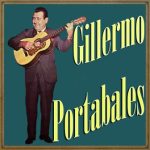 Guillermo Portabales, Guillermo Portabales
Guillermo Portabales, Guillermo Portabales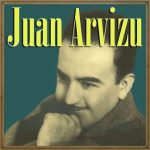 Juan Arvizu, Juan Arvizu
Juan Arvizu, Juan Arvizu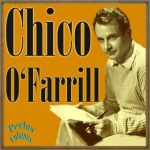 Perlas Cubanas: Chico O'farrill
Perlas Cubanas: Chico O'farrill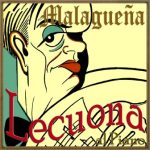 Malagueña, Ernesto Lecuona
Malagueña, Ernesto Lecuona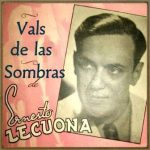 Vals de las Sombras, Ernesto Lecuona
Vals de las Sombras, Ernesto Lecuona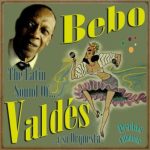 The Latin Sound Of Bebo Valdés
The Latin Sound Of Bebo Valdés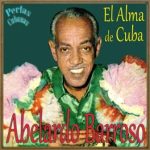 El Alma de Cuba, Abelardo Barroso
El Alma de Cuba, Abelardo Barroso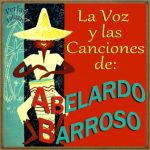 La Voz y las Canciones de Abelardo Barroso
La Voz y las Canciones de Abelardo Barroso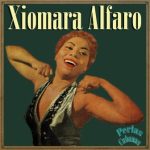 Xiomara Alfaro, Xiomara Alfaro
Xiomara Alfaro, Xiomara Alfaro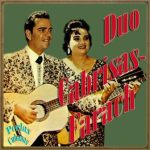 Dúo Cabrisas-Farach, Dúo Cabrisas-Farach
Dúo Cabrisas-Farach, Dúo Cabrisas-Farach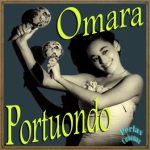 Perlas Cubanas, Omara Portuondo
Perlas Cubanas, Omara Portuondo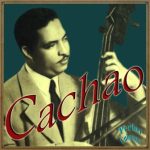 Perlas Cubanas, Cachao
Perlas Cubanas, Cachao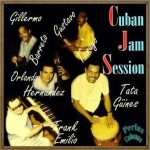 Cuban Jam Session
Cuban Jam Session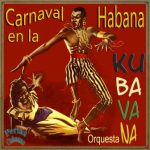 Carnaval en la Habana, Carlos Barberia
Carnaval en la Habana, Carlos Barberia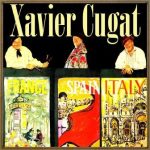 Xavier Cugat in France, Spain and Italy, Xavier Cugat
Xavier Cugat in France, Spain and Italy, Xavier Cugat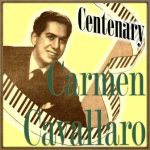 Centenary, Carmen Cavallaro
Centenary, Carmen Cavallaro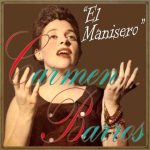 El Manisero, Carmen Barros
El Manisero, Carmen Barros Alouette, Nick Perito
Alouette, Nick Perito La Guajira Cubana, Violines De Pego
La Guajira Cubana, Violines De Pego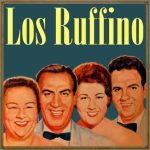 Luna de Miel en Puerto Rico, Los Ruffino
Luna de Miel en Puerto Rico, Los Ruffino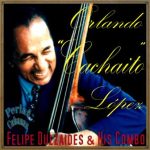 Tropicana Special, Orlando Cachaito López
Tropicana Special, Orlando Cachaito López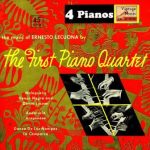 Plays Lecuona, The First Piano Quartet
Plays Lecuona, The First Piano Quartet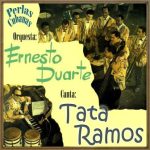 Dame un Chance, Ernesto Duarte
Dame un Chance, Ernesto Duarte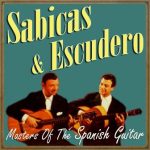 Sabicas & Escudero, Masters of the Spanish Guitar
Sabicas & Escudero, Masters of the Spanish Guitar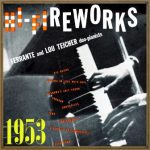 Hi-Fiireworks, Ferrante & Teicher
Hi-Fiireworks, Ferrante & Teicher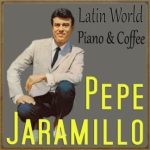 Latin World, Piano & Coffee, Pepe Jaramillo
Latin World, Piano & Coffee, Pepe Jaramillo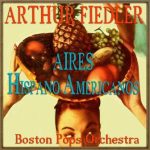 Aires Hispano-Americanos, Arthur Fiedler
Aires Hispano-Americanos, Arthur Fiedler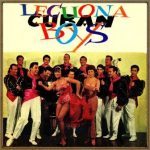 Cubita Cubera, Lecuona Cuban Boys
Cubita Cubera, Lecuona Cuban Boys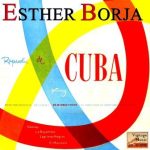 Rapsodia De Cuba, Esther Borja
Rapsodia De Cuba, Esther Borja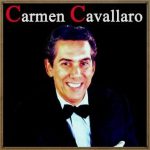 Carmen Cavallaro, Carmen Cavallaro
Carmen Cavallaro, Carmen Cavallaro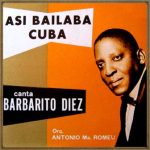 Barbarito Diez, Barbarito Díez
Barbarito Diez, Barbarito Díez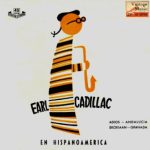 En Hispanoamérica, Earl Cadillac
En Hispanoamérica, Earl Cadillac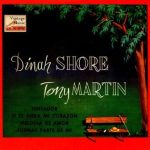 Dinah Shore & Tony Martin
Dinah Shore & Tony Martin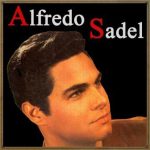 Alfredo Sadel, Alfredo Sadel
Alfredo Sadel, Alfredo Sadel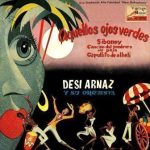 Green Eyes, Desi Arnaz
Green Eyes, Desi Arnaz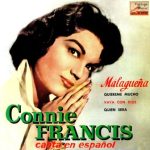 Canta En Español, Connie Francis
Canta En Español, Connie Francis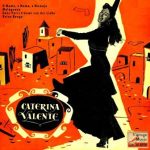 O Mama, O Mama, O Mamajo, Caterina Valente
O Mama, O Mama, O Mamajo, Caterina Valente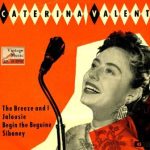 Siboney, Caterina Valente
Siboney, Caterina Valente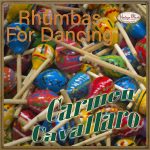 Rhumbas For Dancing, Carmen Cavallaro
Rhumbas For Dancing, Carmen Cavallaro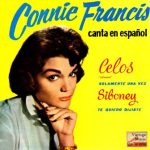 Canta En Español, Connie Francis
Canta En Español, Connie Francis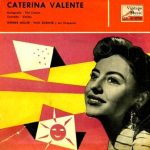 Sings In Spanish, Caterina Valente
Sings In Spanish, Caterina Valente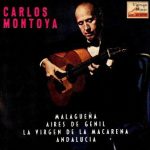 Carlos Montoya In Concert, Carlos Montoya
Carlos Montoya In Concert, Carlos Montoya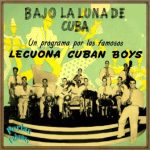 Lecuona Cuban Boys, Ernesto Lecuona
Lecuona Cuban Boys, Ernesto Lecuona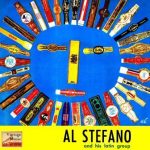 María Dolores, Al Stefano
María Dolores, Al Stefano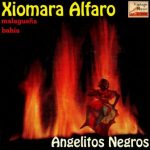 Angelitos Negros, Xiomara Alfaro
Angelitos Negros, Xiomara Alfaro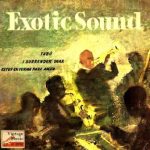 Exotic Sound, Terry Snyder
Exotic Sound, Terry Snyder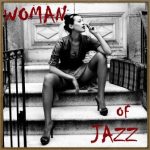 Woman Of Jazz, Varios Artistas
Woman Of Jazz, Varios Artistas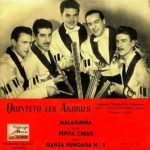 Harmonic World Champions (Winterthur 1955), Quinteto Les Akord's
Harmonic World Champions (Winterthur 1955), Quinteto Les Akord's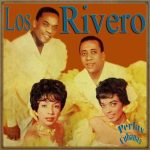 Tropicana, Los Rivero
Tropicana, Los Rivero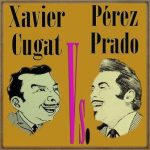 Xavier Cugat vs. Pérez Prado
Xavier Cugat vs. Pérez Prado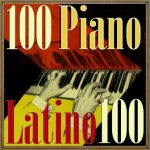 100 Piano Latino
100 Piano Latino